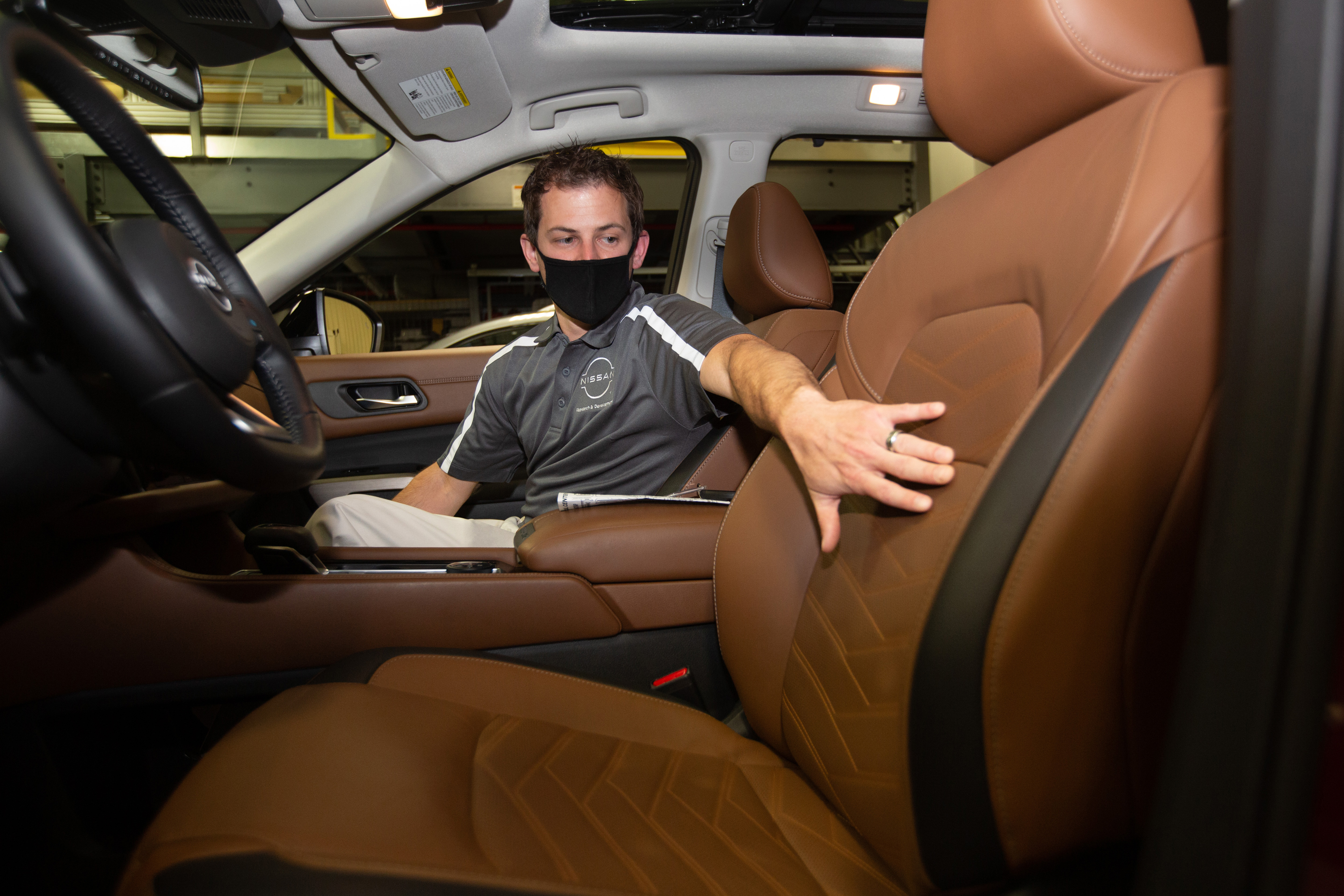
Materials engineer isn't Tori Keerl's most interesting job title. She's also the Smellmaster at Nissan Technical Center In Farmington Hills, Michigan.
Being Nissan's Smellmaster means that she's responsible for making sure that the famed "new car smell" is intact and pleasant to the customer. Keerl and a team of panelists smell a vehicle top to bottom ahead of its public debut. No part of the car is left not evaluated, from the steering wheel to the center console, smelled as a whole and individually.
From there, the tested vehicle goes into a chamber that simulates conditions allowing the panel to smell how odiferous interior materials will be under extreme temperatures. The structure can get up to 120 degrees Fahrenheit.
Joining the team
The "odor panel" is made up of individuals who have passed a test, smelling five different scents (some good, some not so good) in Keerl's lab and determining if they can smell them against a neutral control substance. If they get the test 100 percent correct, they can join the panel. If they get one or more attempts wrong, they can wait a year to retake the test.
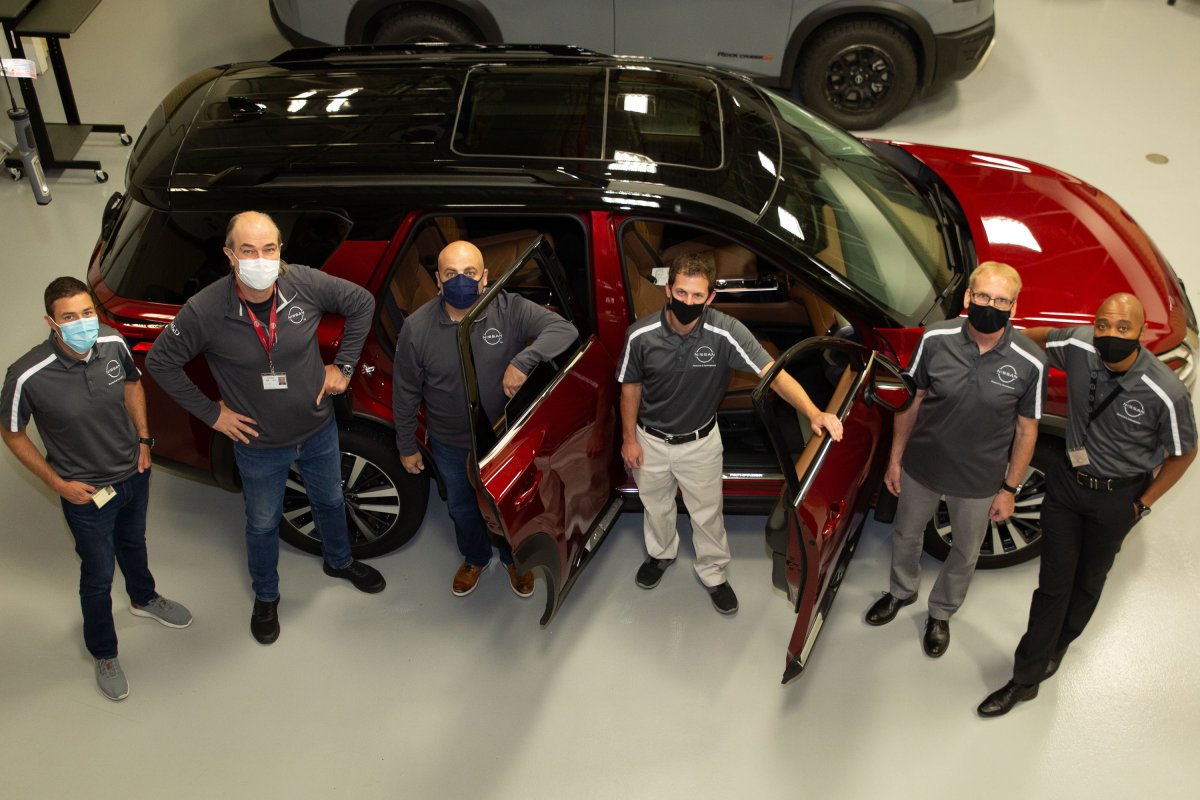
This is the part of her job she enjoys the most, Keerl told Newsweek, because it opens people's eyes to a wider olfactory world.
"Most of the people that I'm testing have never really thought about their sense of smell," she said. "Or they've thought about it with food, but that's about it. They don't really know if they have a good sense of smell or not. So putting them through this testing, which is pretty difficult, is always really interesting."
A satisfactory sniff
Why do automakers spend so much time and effort on something that the average car buyer might not notice? In Nissan's case, Keerl says that the company wants to make sure the new car smell continues to satisfy customers in the U.S. who still want that experience.
"We want one cohesive smell in the vehicle," she said. "So, in the U.S. market, there are a lot of odors that we really enjoy. Those [smells] would be expected when we're getting into a new car. We want to be sure that we meet that expectation."
That expectation is different in other parts of the world. Each region has a different set of smell standards. European and Asian Nissans have different smells from U.S. models and from one another.
The man setting those standards for Asia, and sometimes globally, is Ryunosuke Ino. In his years working on smell quality at Nissan, he has smelled more than 3,000 cars in Japan and the U.S.


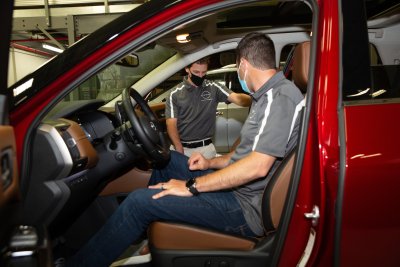
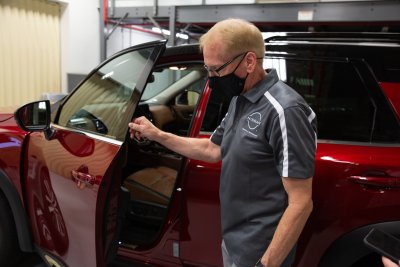
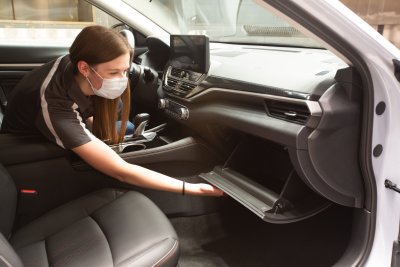

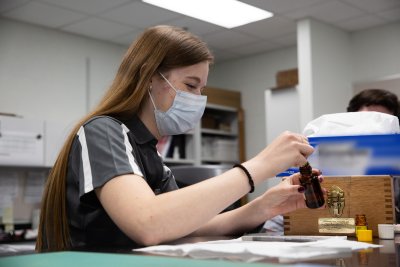
While those standards may seem rigid on the surface, Ino told Newsweek that they're constantly changing based on market research and customer feedback.
"When I do research, it's interesting to discover the culture of an area through their aromas," Ino said. "There are many ways to consider regional cultures. Smell interests me the most."
He calls his work "the pursuit of human comfort."
Nissan's not alone
Every automaker has a set of quality control standards when it comes to their in-vehicle scents.
Scientifically, these the collection of scents in a new vehicle are just gasses emanating from the materials used in the car. When they're described by their chemical reactions, it generally doesn't mean anything to the buyers. But "new car smell" is pivotal when it comes to making passengers comfortable upon entry into their future new car.
Dawn Goldworm, founder of 12.29, a scent boutique that counts Cadillac, Lamborghini and Porsche among its clients, thinks that the work Nissan does to smell test their vehicles is important to bringing out positive emotions from potential buyers.
"The fact that Nissan has people smelling every single surface to make sure it's in balance with the car makes perfect sense," she said. "If there's too much of one of those smells, which are deemed unhealthy or unnatural, then people aren't going to feel good in the car, nor want to buy it."
While every automaker approaches scent in a different way, they're all trying to reach the same goal.
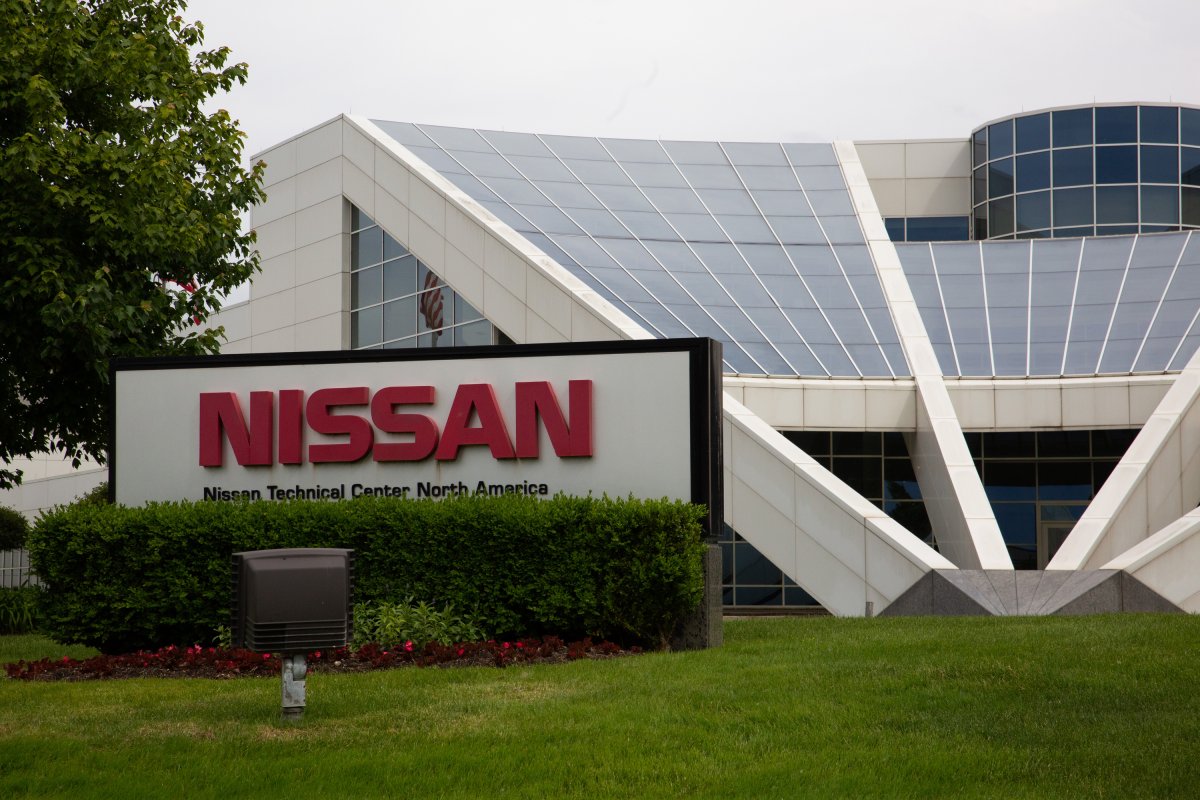
"Different brands have different emotional territories that they're looking to cover," Goldworm explained.
Mercedes goes a step further
Across the Atlantic, there's an additional step that Mercedes-Benz takes to reach a higher level of connection with customers. Since 2013, the German luxury automaker has included fragrances made in-house in its vehicles, usually diffused from a vehicle's vents.
Spearheading that effort is futurologist and perfumist Sabine Engelhardt. She told Newsweek that the addition of a scent that the customer chooses enhances their comfort level and distinguishes any driver's car from the rest of the pack.
There are currently 18 different scents that a customer can choose from, including Downtown (jasmine, lillies and warm musk) and Agarwood (woody notes with raspberry and jasmine), along with an empty diffusing canister that the driver can fill with any scent of their choice.
Shaping a new scent, often for a specific car, takes about a year. That process begins by going all the way back to the inspiration behind the interior.
"Normally, I go to the interior design colleagues first, and talk to them when they are making the very first impressions and moodboards for the interior of the new car," Engelhardt said.
After that she talks to the marketing department about who the target customers are for that particular car, be it the new S-Class sedan or GLC SUV. She then talks to her futurist colleagues about the brand, the car, the history behind both and what that means for right now and five years from now.
"After that, there's a lot of reading," she said. "I usually have some books I read during inspiration time. When you speak about perfume, it's very romantic. It's poetic to speak a lot in colors. Then I get a feeling for the story of the perfume."
Engelhardt says that while she's very interested in customer feedback, detailed descriptions on the scent go in one ear and out the other. She's really just looking for one thing: a smile.
"When I see the connection, that the story is right with the perfume, that they're curious, that they like what they smell and understand it, this is the moment where I know I'm right," she said.
There's an even deeper level that explains our connection to cars and scents, and gets at the heart of what Engelhardt is describing. It's who we are as humans at the biological level.
Scents are linked to emotion
Harvard Medical School neurobiologist Dr. Sandeep Robert Datta is one of the world's foremost experts on how human brains interact with scent, how the brain processes the information received from a scent and how scents are linked to our emotions and behaviors. He told Newsweek that the sense of smell is directly connected to emotional centers in the brain, which could explain the importance that automakers place on it.
"One of the automakers' goals is to create an emotional bond between the car buyer and the car itself," he said.
The sense of smell is directly connected, more than any other sense, to the amygdala, the section of the brain that processes emotions and memories. That connection is formed with the olfactory bulb, a mass of tissue that is connected to each nasal cavity and transmits information on any given smell to the brain.
"It's like your brain is built to have feelings about smells," he explained. "I also think that the new car smell potentially bonds you to the car. You know the pleasure that you get from driving a new automobile. You're reminded of that smell the next time you're out shopping for a new car and it makes you feel good."
Despite years of researching the topic, there's still one piece of the puzzle missing. Datta said that there is currently no explanation for how the brain differentiates between smells and perceives them.
"We don't understand how the brain organizes smells in order to enable perception," he said. "What makes lemon smell like lemon? What is the new car smell and why do I perceive it that way? That we have no explanation for. Our brain basically invents how we perceive a smell."
For Goldworm, holding up the standards of the new car smell boils down to the appeal of the automobile that has existed since Bertha Benz took the kids to see her mom in the Patent-Motorwagen in 1888: the freedom to go where you want when you want.
"Depending on the car, depending on what you're using it for, a lot of people feel freedom in a car," she said. "They can just get in and go wherever they want. And that freedom has a smell to it."
Uncommon Knowledge
Newsweek is committed to challenging conventional wisdom and finding connections in the search for common ground.
Newsweek is committed to challenging conventional wisdom and finding connections in the search for common ground.
About the writer
To read how Newsweek uses AI as a newsroom tool, Click here.








